For marketers, making every dollar count is crucial. Measuring the Return on Investment (ROI) for marketing campaigns is key—it guides smart resource allocation and drives growth.
But it's not easy. With so many channels and data, measuring ROI can be like navigating a maze. Marketers often need help pinpointing which metrics show how well their campaigns are doing. A strategic approach to ROI measurement is necessary to make sense of this data jungle and get valuable insights.
According to a recent study by HubSpot, 79% of marketers say measuring ROI is a top priority.
Let's break down the complexities of measuring ROI in marketing campaigns. This article serves as your guide, simplifying the process by focusing on the key metrics that genuinely mirror campaign success and match your business goals.
Understanding each metric's significance helps paint a vivid and meaningful picture of your marketing ROI.
Key Metrics for Measuring Marketing ROI
These metrics help businesses assess the effectiveness and profitability of their marketing efforts, allocate budgets efficiently, and optimize their marketing strategies.
Customer Acquisition Costs (CAC)
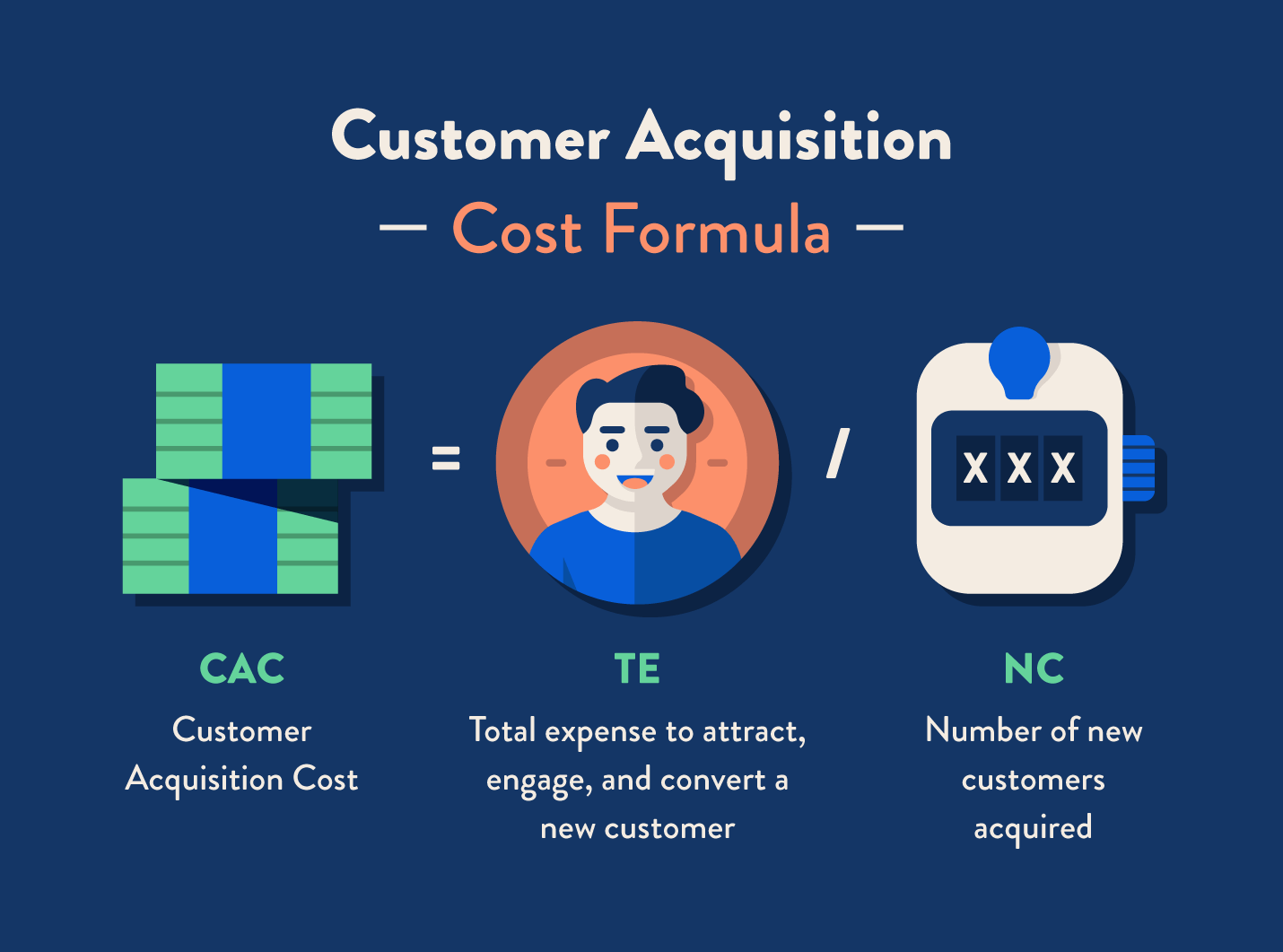
This indicator shows how much a company spends on bringing on a new client. It covers all expenses related to advertising, paying the sales staff, and providing incentives or promotions to potential clients, among other costs related to marketing and sales initiatives to bring in a new client.
You can divide your overall marketing and sales expenses by the number of new clients you bring on board in a specific time frame to get the CAC.
Lifetime Value of a Customer (LTV)
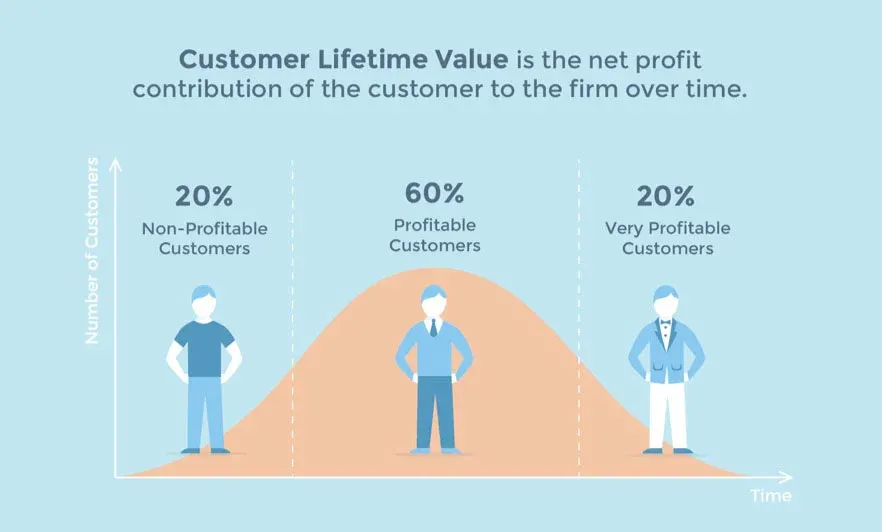
LTV represents the total revenue a business can expect to generate from a single customer throughout their relationship. It considers the customer's purchase history and the likelihood of repeat business or referrals.
A customer with a high lifetime value (LTV) is more valuable to your company. To compute lifetime value (LTV), deduct any marketing/sales charges and the cost of items sold from the total income received from a customer. Then, multiply the remaining amount by the anticipated number of repeat purchases over the customer's lifetime.
Return on Investment (ROI)
ROI measures the return on a business's investment in marketing or advertising efforts. It represents the revenue generated from a campaign (or set of campaigns) relative to the amount spent on those campaigns.
To calculate ROI, you can divide the incremental revenue generated by a campaign by the total cost of the campaign.
Return on Ad Spend (ROAS)
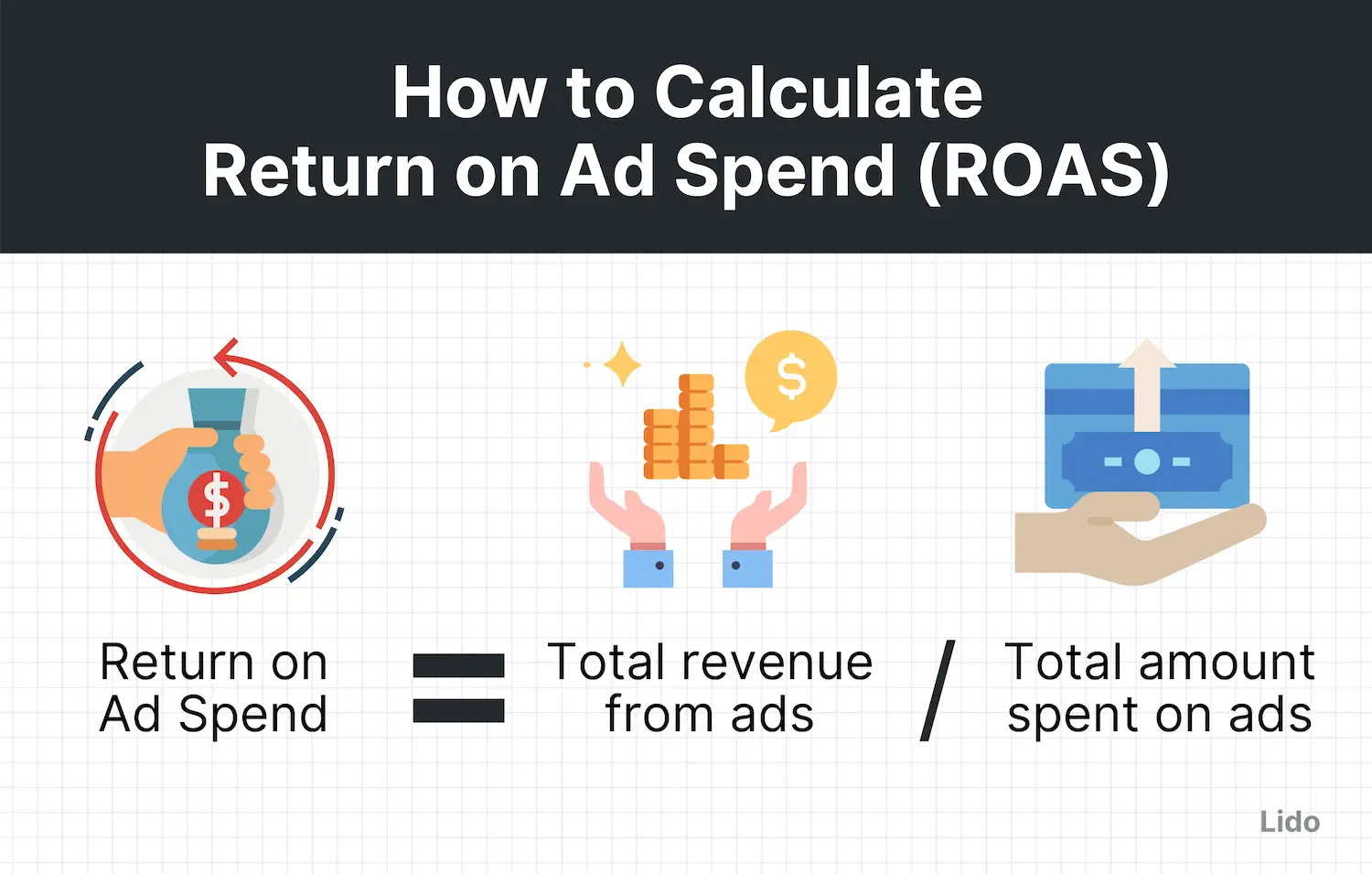
ROAS is a metric similar to ROI but specifically focuses on the return generated from advertising spend. It represents the revenue generated from advertising activities relative to the amount spent.
To calculate ROAS, you can divide the revenue generated by advertising campaigns by the total cost of those campaigns.
Conversion Rates
Conversion rates measure the percentage of visitors to a website or campaign who take a desired action, such as purchasing, filling out a form, or signing up for a newsletter.
High conversion rates indicate that a campaign effectively drives action from prospective customers.
To calculate conversion rates, you can divide the number of conversions (e.g., purchases and sign-ups) by the number of website or campaign visitors.
Tools for Measuring Marketing ROI
These tools are essential for calculating marketing return on investment because they give organizations data-driven insights and make it easier to assess the success of their marketing campaigns.
Businesses may maximize their return on investment, make well-informed decisions, and allocate resources effectively by utilizing these tools.
Google Analytics
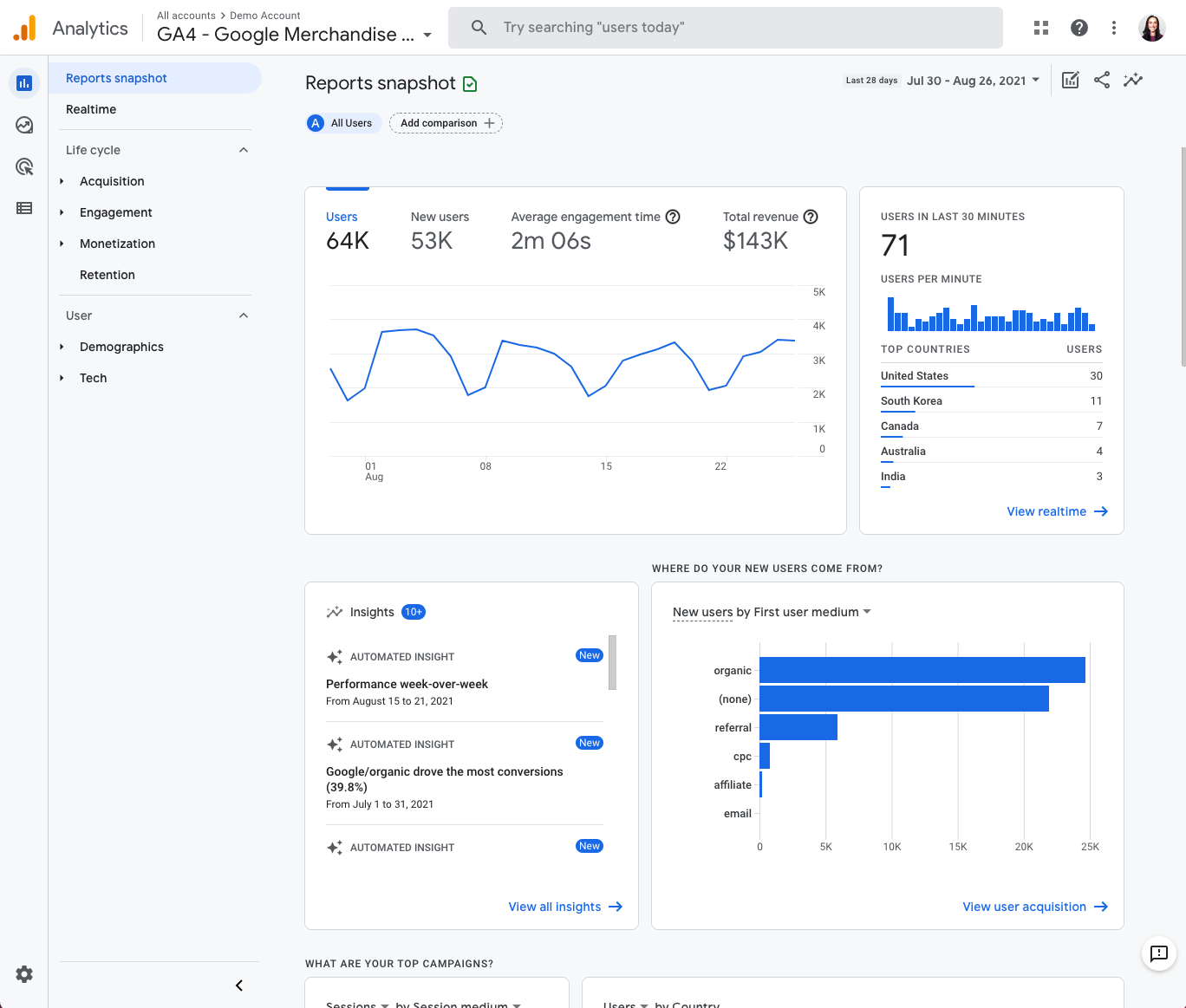
Google Analytics is an effective tool that offers thorough insights into user behavior and website traffic. Numerous marketing data, including the number of visitors, conversion rates, bounce rates, and average session time, can be monitored and measured with its help.
You may assess the success of your marketing activities and make data-driven decisions to improve them by knowing how users engage with your website.
CRM software
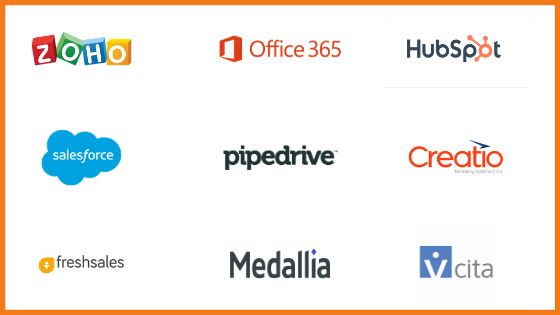
Businesses can handle and analyze client data using customer relationship management (CRM) software. It lets you monitor sales activity, follow up with customers, and examine their behavior. CRM software gives you a comprehensive picture of your customer's journey by merging sales and marketing data, allowing you to assess how successful marketing activities are at attracting and keeping new clients.
But just like any marketing campaign, results depend on the marketing strategies and efforts you give. This sometimes includes doing things your competitors are not doing.
For example, consider making the most out of your CRM by integrating it with an AI chatbot. And what good does it bring to your business?
Take the case of ‘Retargeting’. To implement effective retargeting you need two things: A well-integrated CRM and an effective bulk message sender.
By integrating a CRM with your chatbot you can set up drip campaigns and send bulk messages on platforms that are convenient for your customers.
And beginning with such automation isn't that tough either. Meet BotPenguin- the home of chatbot solutions.
With the combined benefits of CRM and Chatbots, BotPenguin makes automation services like lead generation and customer support more effective by unifying marketing and sales efforts in one place:
- Marketing Automation
- WhatsApp Automation
- Customer Support
- Lead Generation
- Facebook Automation
- Appointment Booking
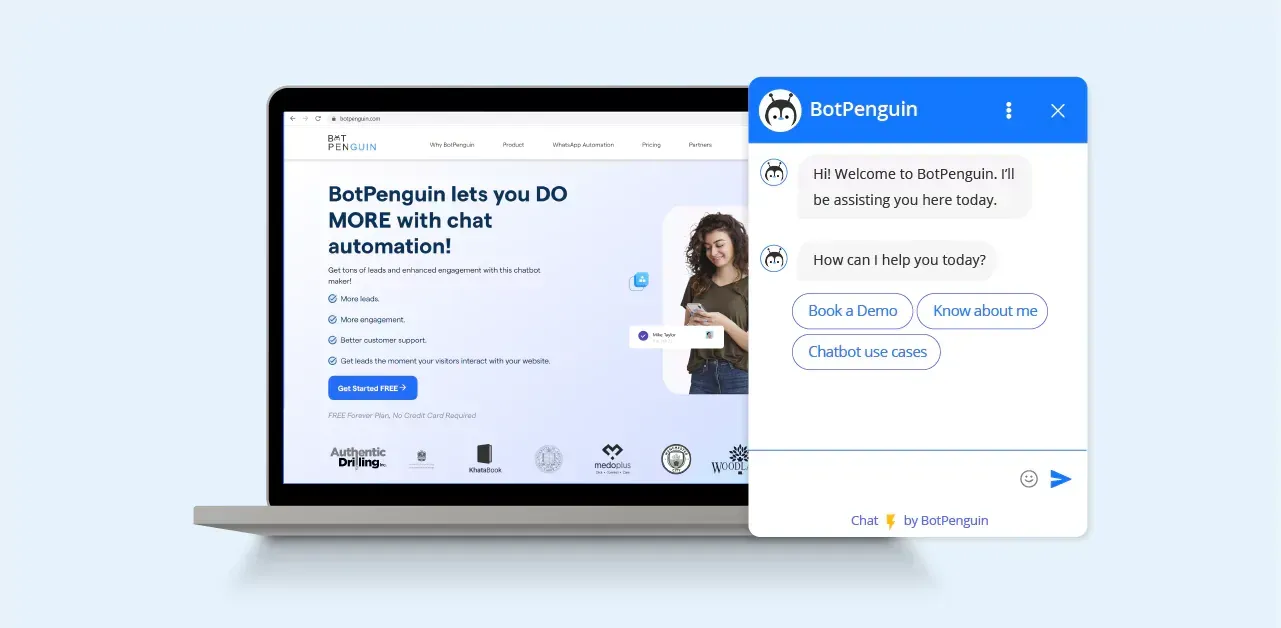
Marketing automation platforms
Marketing automation platforms automate marketing processes and campaigns, making it easier to measure ROI.
These platforms allow you to track and analyze various marketing metrics, automate lead nurturing, and generate detailed reports.
By monitoring campaign performance, you can assess the ROI of your marketing efforts and optimize your campaigns to drive better results.
Social media analytics tools
Social media analytics tools provide information about the effectiveness and reach of your social media marketing initiatives.
You can track engagement rates, follower growth, reach, and conversions using these tools.
Analyzing these indicators allows you to calculate the ROI of your social media campaign and discover areas for development.
Advertising platforms (e.g., Facebook Ads Manager, Google Ads)
To monitor the efficacy of your paid advertising campaigns, advertising platforms give powerful analytics and reporting options.
They enable tracking metrics like impressions, clicks, conversions, and cost-per-acquisition (CPA).
You may measure the ROI of your advertising efforts, make data-driven modifications, and optimize your ad spending by analyzing these indicators.
Suggested Reading:
Choosing the Right Marketing Analytics Tools for Your Business
Strategies for Improving Marketing ROI
Businesses may improve the effectiveness of their marketing initiatives, raise conversion rates, and maximize ROI by using these tactics. Businesses can continuously test and optimize campaigns to improve their long-term marketing strategies.
Testing different ad formats and channels
To improve marketing ROI, businesses should experiment with different ad formats and channels to identify which drive the best results.
This may involve testing different platforms like Google Ads, social media advertising, display advertising, and different formats like text ads, image ads, or video ads.
Businesses can increase conversion rates and maximize ROI by analyzing ad performance and optimizing campaigns.
Focusing on niche audiences
Rather than trying to appeal to a broad audience, businesses can improve marketing ROI by targeting specific, niche audiences.
This involves identifying the most profitable customer segments and crafting messaging tailored to their interests and needs.
Businesses can improve conversion rates and ROI by focusing on high-value customers and delivering personalized, relevant messaging.
Leveraging data analytics tools
Data analytics tools enable businesses to track and measure various marketing metrics, making it easier to identify areas for improvement and optimize campaigns for maximum impact.
Businesses can make data-driven decisions, test new strategies, and improve marketing ROI by analyzing customer behavior, website traffic, and campaign performance.
Retargeting campaigns
Retargeting campaigns involve targeting customers who have previously interacted with a business, such as those who visited a website or abandoned a shopping cart.
Businesses can improve conversion rates and ROI by delivering messaging tailored to these customers and reminding them of the products or services they have shown interest in.
Personalization and segmentation
Personalization and segmentation involve delivering tailored messaging and content to customers based on their interests and behavior.
Businesses can deliver messaging that resonates with specific audiences by segmenting customers based on demographics, interests, and buying behavior, improving conversion rates and ROI.
Conclusion
Measuring marketing ROI involves tracking key metrics like customer acquisition costs, lifetime value, return on investment, ad spend, and conversion rates. These metrics reveal how effective and profitable marketing efforts are.
Tools like Google Analytics, CRM software, and social media analytics platforms help analyze campaign data. They provide detailed insights to optimize marketing strategies.
Improving ROI means testing different ad formats, targeting specific audiences, using data analytics tools, running retargeting campaigns, and personalizing messages. These strategies boost results and conversions.
Setting clear goals for campaigns is crucial for focused ROI tracking. Investing in reliable data tools and updating industry trends enhances marketing effectiveness.
Suggested Reading:
Frequently Asked Questions (FAQs)
What are the key metrics used to measure marketing ROI?
Key metrics used to measure marketing ROI include customer acquisition costs (CAC), lifetime value of a customer (LTV), return on investment (ROI), return on ad spend (ROAS), and conversion rates.
How can Google Analytics help measure marketing ROI?
Google Analytics provides insights into website traffic, conversions, bounce rates, and user behavior, allowing businesses to track and measure the effectiveness of their marketing efforts and make data-driven decisions.
Which tools are commonly used to measure marketing ROI?
Commonly used tools to measure marketing ROI include Google Analytics, CRM software, marketing automation platforms, social media analytics tools, and advertising platforms like Facebook Ads Manager and Google Ads.
How can businesses improve marketing ROI?
Businesses can improve marketing ROI by testing different ad formats and channels, focusing on niche audiences, leveraging data analytics tools, implementing retargeting campaigns, and personalizing and segmenting messaging.
What role does customer segmentation play in measuring marketing ROI?
Customer segmentation enables businesses to deliver personalized messaging to specific target audiences, improving conversion rates and marketing ROI by tailoring the message to resonate with each segment's needs and interests.
Why is ongoing tracking and analysis of marketing ROI important?
Ongoing tracking and analysis of marketing ROI helps businesses identify opportunities for improvement, make data-driven decisions, optimize campaigns, and ensure better ROI over time by continuously monitoring and refining marketing strategies.



